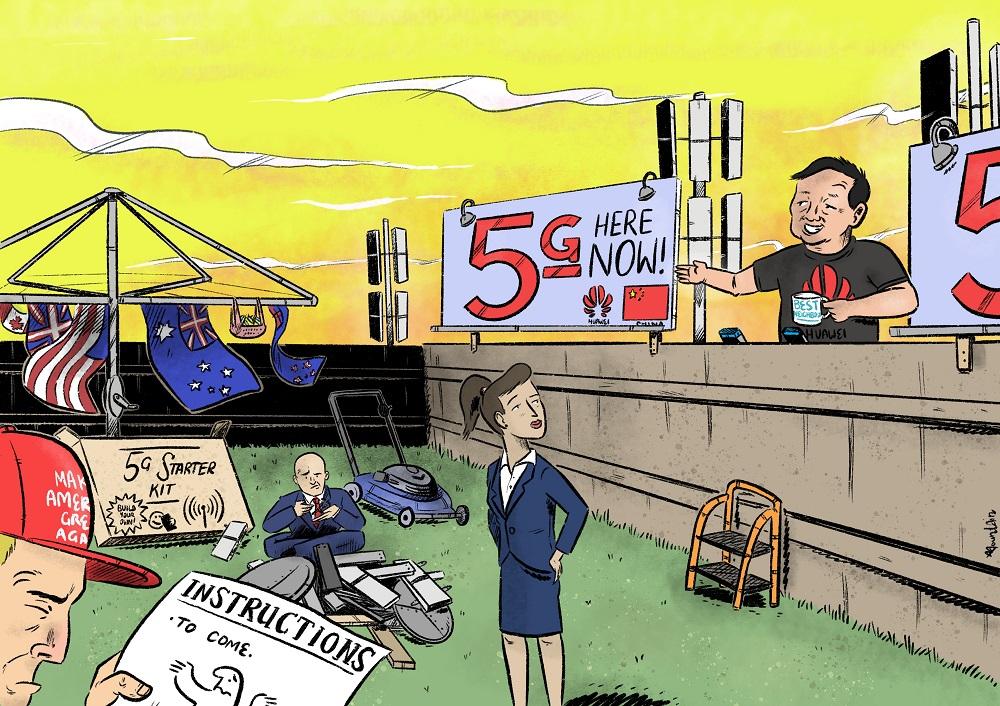
When I left government in 2018 one of my key concerns was that I didn’t think we fully understood the implications of technology for national security.
Technology is going to be a core aspect of the future and it’s not just cyber technology. It’s going to be technology writ large. I believe that we can assimilate this. Game-changing technologies with social implications have been a part of human history during our entire existence as a species.
We tend to think that the time we’re living in is fundamentally different or somehow the toughest. It’s not. There have been game-changing technologies with potential negative second- and third-order effects throughout the history of humanity. We’ve dealt with this before. I believe we can deal with it now. But we’ve got to be willing to sit down and think about it. And we really need to ask ourselves what’s the way forward.
What’s the right answer for the implementation of a technology that will be a fundamental building block for a nation’s economic competitiveness in this digital world that we’re living in?
5G is emblematic of this, because 5G is not just about, ‘I’m going to get a better phone service.’ That’s not the heart of it. 5G is going to enable us to radically address latency issues. We’re going to be able to move massive amounts of data at incredible, stable rates that will give our handheld digital devices the kind of capability and functionality that we take for granted today in our laptops and in our mainframes.
5G is going to underpin all of that, and it’s only one of many foundational technologies that are being developed right now. As I used to say about 5G in our system, ‘Hey, it’s just the wolf closest to the sled.’ It’s emblematic of a broader set of challenges that we’re going to have to deal with over time.
The dynamics we’re seeing now with 5G are prompting the question of how that strategy works when the competition isn’t a single foreign company. The competition now is an integrated national strategy in which that foreign company is just one component. How does a single private company compete against the integrated efforts and resources of an entire nation-state?
A series of technological changes are on the way. They’re going to be so foundational that if we don’t change the dynamic, we’re going to have this conversation over and over again. It’s not about stopping any particular nation or contesting a particular company. This is about ensuring our own and our partners’ competitive ability in the 21st-century digital age. Because, again, you’re going to have to deal with this with other countries and other companies over time. Right now, that happens to be China, Huawei and 5G, but it’ll be something different in the future.
I think the goal is to make sure that the playing field is level. Once we have a level playing field, then it’s up to our private sector. But the challenge right now is that the playing field isn’t level, and it’s really difficult for the West’s firms to compete. And I just don’t think it’s realistic to expect them to do this on their own. Levelling the playing field is going to take work. It’s also about ensuring agreements are adhered to and that there are consequences for clear breaches.
In my new report for ASPI’s International Cyber Policy Centre I offer up a five-point strategy for western policymakers to prepare for the next wave of disruptive technologies after 5G:
- See technology as a capability, not a product
- Rethink technological competition
- Develop a strategy
- Strengthen our alliances
- Communicate with broader audiences about cyber strategy
We have to be asking ourselves how we need to change our model, because if we think it’s bad now with 5G, I would argue it’ll be worse when 6G comes along in about three years. And it’ll be worse still with artificial intelligence, quantum computing and other new technologies coming down the pipeline right now.